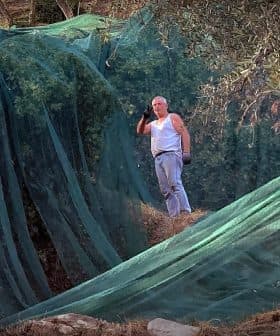Mediterranean Diet Makes UNESCO's Intangible Heritage List
The fifth session of the UNESCO Intergovernmental Committee in Nairobi inscribed 51 new elements on UNESCO’s Lists of Intangible Heritage, with 47 on the Representative List and 4 on the Urgent Safeguarding List, including the Mediterranean Diet. The Mediterranean Diet, inscribed in 2010, includes a set of skills, knowledge, practices, and traditions related to food consumption, social interaction, and respect for the territory and biodiversity in Spain, Greece, Italy, and Morocco.
BREAKING NEWS
The fifth session of the UNESCO Intergovernmental Committee, chaired by Jacob Ole Miaron (Kenya) and meeting in Nairobi with some 450 participants, finished its work on 19 November by inscribing 51 new elements on UNESCO’s Lists of Intangible Heritage.
Meeting for the first time in Sub-Saharan Africa (Kenya), the twenty-four States members of UNESCO’s Intergovernmental Committee for the Safeguarding of the Intangible Cultural Heritage discussed and decided to inscribe four elements on the Urgent Safeguarding List and 47 elements on the Representative List.
The Committee’s decision is closely watched around the world by communities conscious of the importance of safeguarding their heritage. The Intangible Cultural List was started in 2003 and now comprises some 166 entries, including Croatian Lace Making, Argentinean Tango and Tibetan Opera.
The initiative to include the Mediterranean Diet on the list began four years ago when Italy, Spain, Greece, and Morocco put it forth. It did not meet UNESCO’s guidelines and the initiative was rejected. Last August the four countries, with Italy coordinating, reworked their submission request.
The Mediterranean Diet
Inscribed in 2010 on the Representative List of the Intangible Cultural Heritage of Humanity
Countries: Spain — Greece — Italy — Morocco
The Mediterranean diet constitutes a set of skills, knowledge, practices and traditions ranging from the landscape to the table, including the crops, harvesting, fishing, conservation, processing, preparation and, particularly, consumption of food. The Mediterranean diet is characterized by a nutritional model that has remained constant over time and space, consisting mainly of olive oil, cereals, fresh or dried fruit and vegetables, a moderate amount of fish, dairy and meat, and many condiments and spices,
all accompanied by wine or infusions, always respecting beliefs of each community. However, the Mediterranean diet (from the Greek diaita,or way of life) encompasses more than just food. It promotes social interaction, since communal meals are the cornerstone of social customs and festive events. It has given rise to a considerable body of knowledge, songs, maxims, tales and legends. The system is rooted in respect for the territory and biodiversity, and ensures the conservation and development of traditional activities and crafts linked to fishing and farming in the Mediterranean communities which Soria in Spain, Koroni in Greece, Cilento in Italy and Chefchaouen in Morocco are examples. Women play a particularly vital role in the transmission of expertise, as well as knowledge of rituals, traditional gestures and celebrations, and the safeguarding of techniques.
What is Intangible Heritage?
The term ‘cultural heritage’ has changed content considerably in recent decades, partially owing to the instruments developed by UNESCO. Cultural heritage does not end at monuments and collections of objects. It also includes traditions or living expressions inherited from our ancestors and passed on to our descendants, such as oral traditions, performing arts, social practices, rituals, festive events, knowledge and practices concerning nature and the universe or the knowledge and skills to produce traditional crafts.
While fragile, intangible cultural heritage is an important factor in maintaining cultural diversity in the face of growing globalization. An understanding of the intangible cultural heritage of different communities helps with intercultural dialogue, and encourages mutual respect for other ways of life.
The importance of intangible cultural heritage is not the cultural manifestation itself but rather the wealth of knowledge and skills that is transmitted through it from one generation to the next. The social and economic value of this transmission of knowledge is relevant for minority groups and for mainstream social groups within a State, and is as important for developing States as for developed ones.
Source: UNESCO
Read More:
UNESCO: What is Intangible Heritage?
UNESCO: Convention for the Safeguarding of the intangible cultural heritage (PDF)




